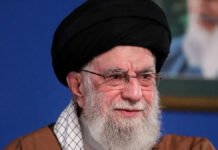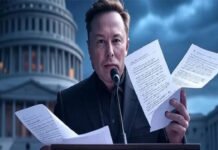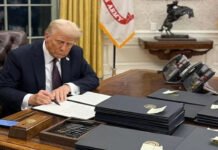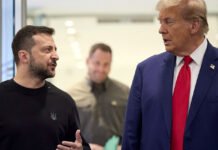INVC NEWS
New York — : Elon Musk, the billionaire CEO of Tesla and SpaceX, has publicly acknowledged his past use of ketamine as a prescribed medication, following controversial media reports that linked his drug use to the Donald Trump 2020 election campaign. While Musk has vehemently rejected the more scandalous elements of these reports, including allegations of recreational drug abuse and espionage vulnerability, the subject has triggered widespread debate about privacy, public figures, and media responsibility.
Media Reports Claim Drug Use During Trump’s Campaign
A detailed exposé by The New York Times has sent shockwaves across political and tech circles, alleging that Musk frequently consumed ketamine, ecstasy, and psychedelic mushrooms during the heat of Donald Trump’s 2020 campaign. According to the report, Musk was not just politically active behind the scenes, but also battling internal family tensions, romantic entanglements, and personal lawsuits.
The article also makes the astonishing claim that Musk was known to carry a pillbox with up to 20 different medications during that period. Citing unnamed sources close to the matter, the report paints a chaotic picture of Musk’s personal life while he maintained high visibility in national discourse and innovation.
Musk Responds: Ketamine Was Medical, Not Recreational
Taking to X (formerly Twitter), Musk dismissed the media narrative as sensationalized. He admitted to using ketamine in the past, but clarified it was under medical supervision and specifically to combat stress-related issues. Musk emphasized that the incidents mentioned are years old and no longer reflect his current lifestyle or mindset.
He labeled the media’s approach as “agenda-driven journalism” and accused outlets of twisting facts to suit political narratives. “I’ve never hidden the fact that I took ketamine as prescribed,” Musk posted. “It helped with stress. That’s it. The rest is tabloid fiction.”
FBI Agent Alleges Russian Spy Trap Targeting Musk
In an even more dramatic twist, Jonathan Bouma, a former FBI intelligence agent, has made explosive claims in a documentary aired on German broadcaster ZDF. According to Bouma, Russian intelligence agencies reportedly attempted to entrap Musk in a “sex and drugs” blackmail operation, focusing on his known presence at the Burning Man festival, his social lifestyle, and alleged susceptibility to manipulation.
Bouma stated that after the war in Ukraine began, Russia’s FSB targeted high-profile US tech figures including Elon Musk and PayPal co-founder Peter Thiel. These efforts allegedly aimed to collect compromising material, which could be used strategically if needed. “Musk’s attraction to party culture, pornographic content, and psychedelics made him a soft target,” Bouma said in the documentary, sparking a new wave of concerns over national security vulnerabilities tied to powerful private individuals.
Musk’s Alleged Lifestyle Sparks Public Discourse
The reports, whether entirely accurate or partially exaggerated, have ignited conversations about the intersection of private behavior and public responsibility. Elon Musk, as one of the most influential figures in global tech and finance, holds substantial control over platforms like X, aerospace missions with SpaceX, and energy innovations via Tesla. Any threat to his integrity or decision-making processes becomes a matter of public and geopolitical interest.
Social media has been divided in its response. Some users defend Musk’s transparency and point out that medical ketamine use is legal and increasingly common for treating depression and stress disorders. Others argue that high-ranking entrepreneurs involved in sensitive sectors must adhere to higher personal conduct standards, given the risk of foreign manipulation or reputational damage.
Media’s Role Under Scrutiny Amid Political Context
The timing of the revelations has also come under the scanner, especially with the 2024 U.S. presidential election cycle heating up. Elon Musk’s closeness to conservative voices and his critiques of mainstream media outlets have already positioned him as a polarizing figure. The allegations regarding drug use during Trump’s previous campaign and connections to espionage plots are now seen through a highly politicized lens, where facts and interpretation blur.
This isn’t the first time Musk has faced criticism over his behavior. From smoking marijuana on Joe Rogan’s podcast to controversial tweets that shook the stock market, he has consistently remained a central figure in global media. However, these new drug-related claims appear to be among the most serious, as they also implicate foreign intelligence agencies and touch upon national security implications.
Ongoing Fallout and Global Repercussions
The repercussions of these reports are being felt beyond U.S. borders. International regulators, investors, and cybersecurity analysts are now asking critical questions about how personal vulnerabilities can affect global business operations, especially when they involve figures who influence markets, public discourse, and even space exploration missions.
Musk has not confirmed any legal response to the New York Times report or Bouma’s allegations. However, sources close to Musk’s camp say that internal legal teams are reviewing defamation options, particularly in light of the espionage accusations.
As this saga unfolds, what remains clear is that Elon Musk — a man often described as a tech visionary, a social media agitator, and a political wild card — will continue to occupy the world’s attention. Whether the latest revelations are damaging, revealing, or distorted, they reinforce one thing: Elon Musk is never far from the eye of a global storm.
















